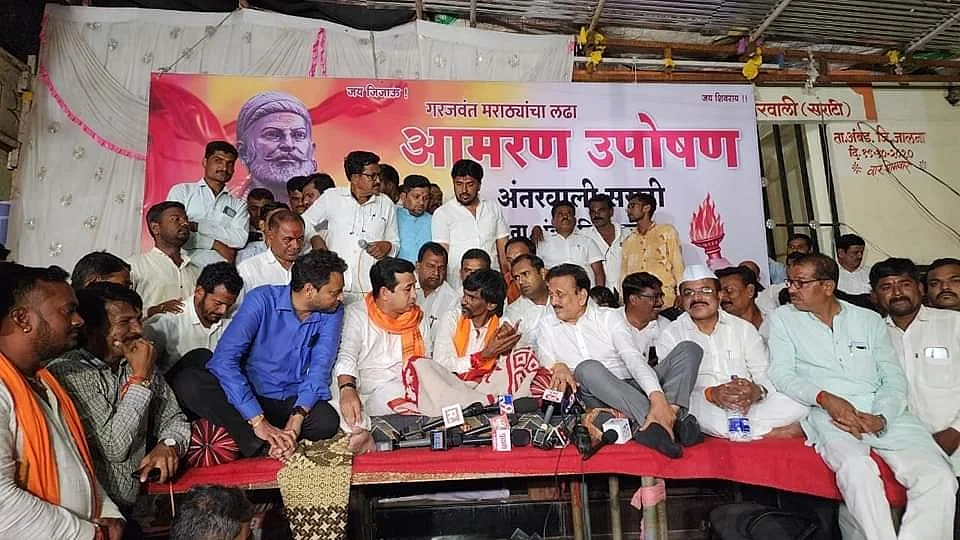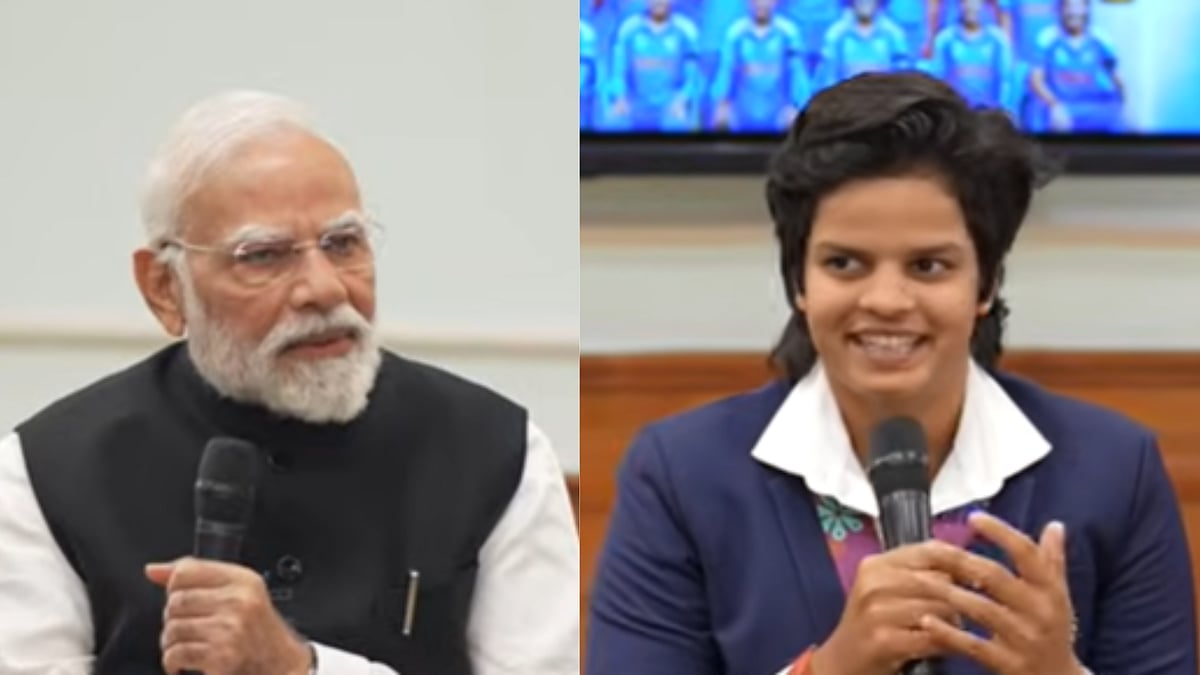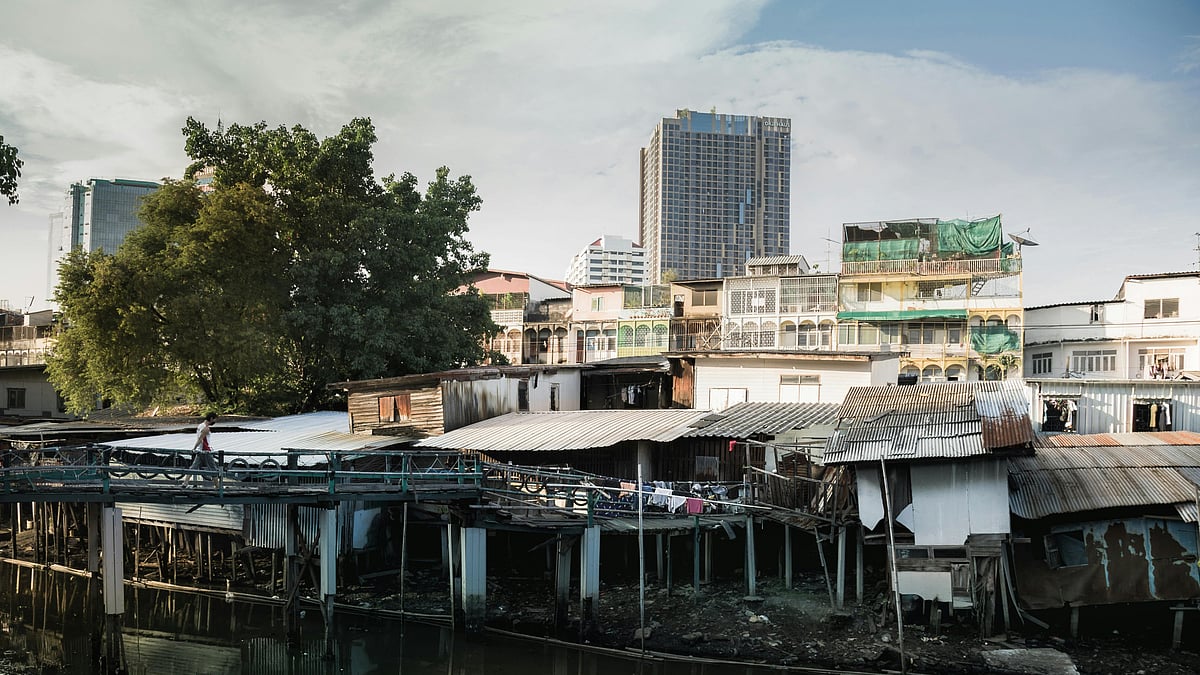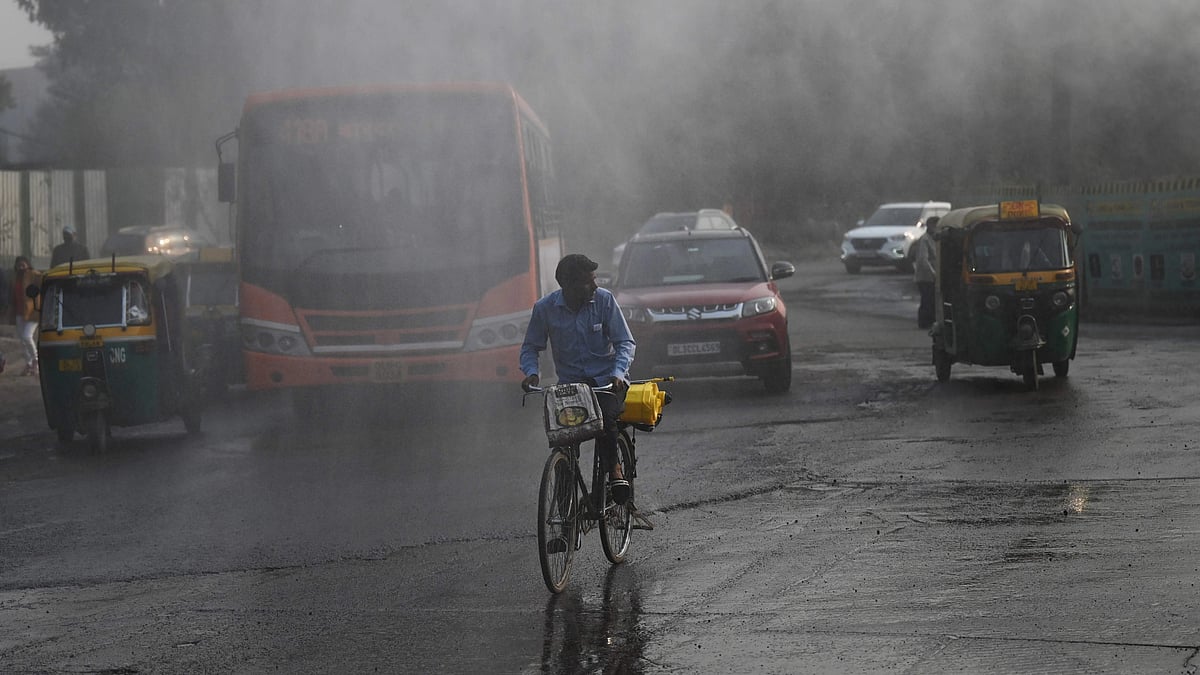It seemed like Maharashtra government's cabinet meeting this week was totally focused only on the issue of the agitation currently brewing in the state over the demand of reservation for the Maratha community in education and jobs. The issue became serious after a police lathi charge happened in a remote place in Ambad tehsil of Jalna district of Marathwada region of the state last week. Chief Minister Eknath Shinde and both deputy chief ministers Devendra Fadnavis and Ajit Pawar were seen getting into firefighting mode, as the reactions to this police lathi charge went seemingly uncontrolled in various districts. The cabinet meeting this week focused on how a certain status can be awarded to the Kunbi community to provide relief to them. But with Opposition leaders rushing to Jalna district, the media paying attention to the incidents there and political reactions, the whole issue has perhaps snowballed into a huge political backlash for the ruling parties in Maharashtra.

The developments over the last week in Jalna and surrounding districts such as Beed, Aurangabad, Parbhani and many other parts of Marathwada give a clear indication of how the discourse is now mainly on reservations for the Maratha community and how this long pending issue is likely to be at the centre stage in the upcoming election season in the state. Obviously, caste and reservation deeply divides people and one can expect some action on the field in the next six months as the debates happen in election rallies over who is responsible for the Maratha community not getting the benefit of reservations in education and jobs yet.
The Maratha community constitutes close to 32% of the population in Maharashtra and is traditionally very vocal and active. No political party in the state wants to lose the support of this community, which perhaps holds the key to who wins in most of the constituencies in Maharashtra. It is clear that the ability to meet the demands put forth by the leaders of this community and the government's actions will make or break the future for any political party. On Tuesday Nationalist Congress Party Chief Sharad Pawar put forth the demand that the 50% limit on reservation should be revised and that could provide the solution to the current impasse but how this could legally be done is a question that remains unanswered considering the past event in courts.
As politics continues and debate over the reservation issue rages in Maharashtra, it is perhaps time to think of how to provide some alternative solutions on the subject and think about what is the root cause of this strife and stress in the state. HIstorically if one looks at the agitation over the demand for reservation for the Maratha community, it has originated in the hinterlands of Marathwada and other underdeveloped parts of the state. Districts in Marathwada such as Beed, Parbhani, Nanded, Aurangabad and Jalna have been the core areas from where the agitation spread to other areas of the state. The issue resonates in Western Maharashtra, districts like Kolhapur, Sangli and Ahmednagar where many agitations took place in the past few years. The core problem in most of these areas has been lack of any kind of economic or industrial development and consistent drought situation. In many parts agriculture has become non-viable as rains are uncertain and drought continues, the fragmentation of land over generations means the holding patterns are not economically viable anymore. Coupled with this is the lack of substantial industrial development in Marathwada region. Unlike in western Maharashtra, people of Marathwada have not been able to fall back on jobs in the cities as agriculture becomes more and more unsustainable. Failing agriculture and lack of jobs has pushed the youth of Marathwada either into migration or getting into aggressive political activism which gets financially supported by certain political parties of leaders. Lack of jobs in the private sector pushes youth more towards government jobs and aspirations are now more and more focused on success in the competitive examinations which give entry into government jobs. This is the root cause of youth wanting reservations in those jobs and getting into agitations for that cause.
Political leaders are now trying to promise the youth some solutions over these employment and financial problems. But even as the hunger agitation by an activist in Jalna district continues, everybody knows that the solution to the problem of unemployment and economic distress is not easy. On Monday during his press conference State Deputy Chief Minister Devendra Fadnavis blamed Opposition parties for adding a political angle and inflaming passions among the agitators. However, this has been the trend for the past several decades in the region, no matter which political party is in power. In 1980s and 1990s young BJP leaders Pramod Mahajan and Gopinath Munde led various agitations in Marathwada's Beed and other districts where issues of unemployment and economic distress were highlighted by them and solutions were promised if they were voted to power.
Unfortunately three or four decades down the line, after successive governments of various political parties being in power for full five-year terms, no solutions have been found to the economic and irrigation-related problems of the Marathwada region. Large-scale unemployment and lack of business opportunities pushes the youth to take up agitations and occasionally get violent. The long-term solution of course is to facilitate rapid industrial growth and attract investment in Marathwada and other deprived regions of the state. Jobs in the private sector or opportunities in self-employment will reduce the pressure on government jobs and competitive exams for entry to those jobs. Political parties and the state government must draw up a concrete blueprint to achieve those targets.
Rohit Chandavarkar is a senior journalist who has worked for 31 years with various leading newspaper brands and television channels in Mumbai and Pune










